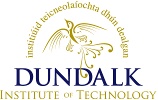McKenna, Barry (2025) An investigation of the effectiveness of an educational programme in psychosocial interventions within one Irish regional rehabilitative mental health service. Masters thesis, Dundalk Institute of Technology.
|
PDF (Barry McKenna Thesis September 2025)
- Submitted Version
Restricted to Registered users only Download (2MB) | Request a copy |
Abstract
Irish mental health services over the last twenty years have mirrored international trends in transitioning from institutional to community-based recovery-oriented care, as advocated in the national mental health strategies (DoHC, 2006; DoHC, 2020). Within one regional mental health service, which was the site of this study, the transition from institutional to community-based services involved a considerable shift in both the task demands upon, and the requisite skill sets of, staff facilitating the transition which was experienced as being occupationally stressful. In response the service collaborated with a third level college in developing an educational programme entitled the 'Certificate in Psychosocial Interventions’ (Cert. PSI) with a particular focus on person-centred, recovery orientated, and community-based rehabilitative mental health. The implementation of the Certificate in Psychosocial Interventions programme was paralleled with a quasi-experimental study which investigated the effectiveness of the programme utilising Kirkpatrick’s model of evaluating educational initiatives. The parameters of measurement employed included participant’s knowledge of recovery, their application of recovery principles in their practice, and their levels of occupational stress. These parameters were measured at three time points, prior to, at mid-point, and at conclusion of implementation of the Certificate in Psychosocial Interventions programme. In addition to utilising three standardised instruments, a purposefully constructed questionnaire also measured participant’s evaluation of the programme. The planned study sample of two cohorts of 25 students was interrupted due to the COVID-19 (coronavirus) pandemic, which resulted in a final study of all 24 who undertook the ‘Certificate in Psychosocial Interventions’ programme. Data analysis investigated changes over time using repeated paired t-test and ANOVA statistics. Due to the smaller than anticipated sample size, effect size estimates were utilised to measure the direction and size of observed change. Findings revealed that participants positively rated the course content and delivery, and their ability to apply learning to their practice, suggesting the effectiveness of the programme’s core objectives. Objective measurement of recovery knowledge was equivocal, findings regarding occupational stress were negative, and contrary to expectation and intention. All findings, particularly findings relating to stress need to be critically considered in the context of coincidental confounding variables, including ongoing organisational reform, the emergence of the COVID-19 pandemic, and coincidental serious health service disruptions nationally. When considered in this context, the services and participants demonstration of a sustained commitment and resilience is worthy of note, in achieving the application of learning to their recovery oriented practice despite circumstances which were unforeseen, and indeed unimaginable, at commencement of the programme.
| Item Type: | Thesis (Masters) |
|---|---|
| Subjects: | Psychology |
| Research Centres: | UNSPECIFIED |
| Depositing User: | Kevin McKenna |
| Date Deposited: | 08 Sep 2025 07:31 |
| Last Modified: | 08 Sep 2025 07:31 |
| License: | Creative Commons: Attribution-Noncommercial-Share Alike 4.0 |
| URI: | https://eprints.dkit.ie/id/eprint/941 |
Actions (login required)
 |
View Item |
Downloads
Downloads per month over past year

